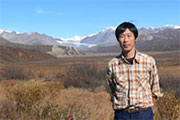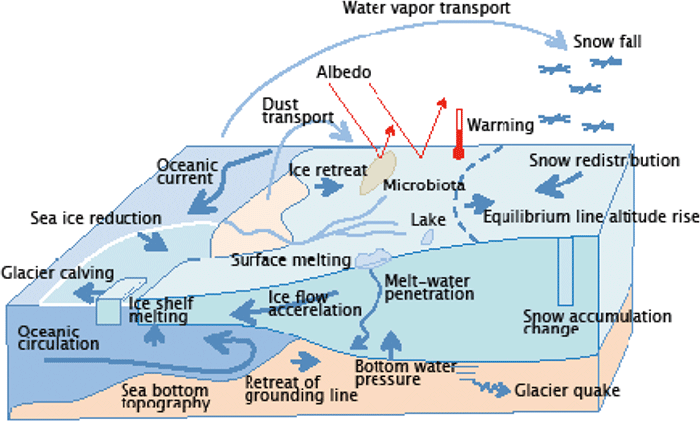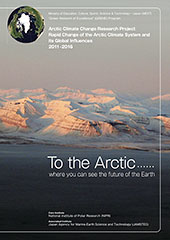Research Project (4)
The role of Arctic cryosphere in global change
Principal Investigator: Hiroyuki Enomoto (National Institute of Polar Research)

Outline
Rapid changes in snow, glaciers and ice sheet in the Arctic are occurring as a result of warming. We are aiming to get a better understanding of these changes and their changing processes, and then the role of snow and ice in the Arctic climate system to the atmosphere, hydrosphere and terrestrial systems.
Our research focuses on two targets. One is the effects of land snow and ice cover in the Pan-Arctic region to the Arctic climate. Around about half of the world's glaciers and ice caps are located in the Arctic region, and these are sensitive to warming. From data gathered in the field and from satellites, we can understand a) the spatial and temporal distribution of snow cover, and b) glacier fluctuations. We will investigate how snow accumulations respond to changes in air temperature and snowfall, and the assess ice-albedo feedback we will try to clarify the process of changes in snow and ice cover. From a chemical analysis of snow samples, we will obtain the information of air temperature, snowfall events, and the spatial distribution of transported environmental substances. This information is helping to make climate change predictions more accurate.
Our second target of research concerns the effects of the mass change of the Greenland Ice Sheet on global climate change. The Greenland ice sheet holds about 10% of the world's ice, which is equivalent to about seven meters of sea level rise. This ice sheet is rapidly shrinking, and at an increasing rate. About half the reduction in the ice sheet is due to melting, and the other half to the discharge of ice and our goal is to quantify this reduction. We will expand observational network in Greenland, for understanding of the changes in the mass of the ice sheet and the processes responsible for them. We will use a model to incorporates our findings, to make predictions and clarify the effects of reduction in the ice sheet on climate change. The reduction in the ice sheet will lead to rising sea levels and will also influence ocean circulation. We will use modelestimation of changing sea levels to predict the eff ects ocean circulation.
Through this research, we will contribute to the achievement of strategic research targets ①Understanding the mechanism of warming amplification in the Arctic, and ②Understanding the Arctic system for global climate and future change.

The influence of changes in the mass of the Greenland Ice Sheet on global climate change

